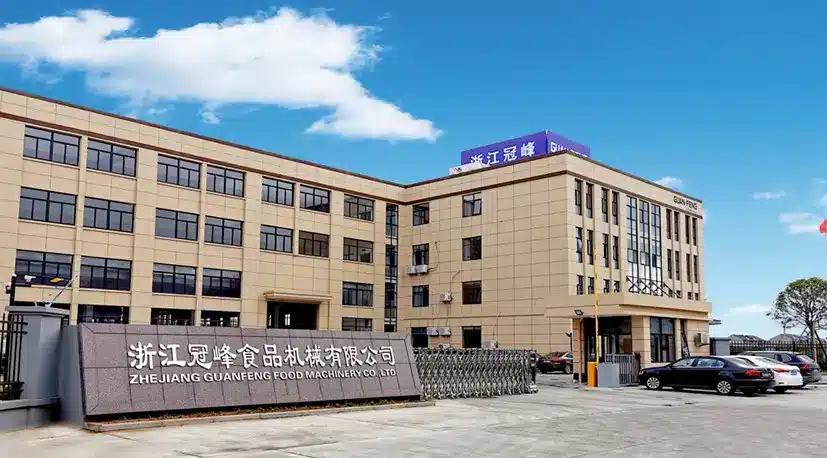BLOG
Focus on hot topics, real-time dynamics
Understanding Lyophilizer Machines: Essential Insights for Life Science Applications
Lyophilizer machines, commonly referred to as freeze dryers, play a crucial role in the life sciences and pharmaceutical industries, enabling the preservation of sensitive biological materials. The lyophilization process involves freezing a product, followed by reducing the surrounding pressure to allow the frozen water in the material to sublimate directly to vapor. This innovative method offers several advantages, making lyophilizers indispensable in various applications, including pharmaceuticals, biotechnology, and food preservation.
One of the primary benefits of using a lyophilizer machine is the preservation of the product's biological activity. The freeze-drying process removes moisture without the need for high temperatures, which can denature proteins and alter the structure of sensitive compounds. This is especially important for vaccines, enzymes, and other biological materials that require stability and potency during storage and transportation.
In addition to preserving biological activity, lyophilization enhances the shelf life of products. By removing moisture, lyophilizers effectively inhibit microbial growth and chemical reactions that can lead to spoilage. This makes lyophilized products ideal for long-term storage, reducing the need for refrigeration and minimizing waste. Furthermore, the lightweight nature of lyophilized products simplifies logistics, allowing for easier transportation.
When selecting a lyophilizer machine, several factors should be considered to ensure optimal performance and alignment with specific applications. The scale of production, type of products to be lyophilized, and desired end characteristics are all critical considerations. Commercial lyophilizers vary widely in size and capacity, from small laboratory units to large industrial systems. Understanding the specific requirements of your operation will help in choosing the right machine.
Another important aspect is the control of temperature and pressure during the lyophilization cycle. Precise control is essential to achieve the desired moisture content and product integrity. Advanced lyophilizer machines are equipped with sophisticated monitoring and control systems that allow for real-time adjustments and data logging, which can enhance reproducibility and compliance with regulatory standards.
Moreover, as the demand for lyophilized products continues to grow, manufacturers are increasingly investing in automation and integration capabilities. Modern lyophilizers often feature user-friendly interfaces, remote monitoring, and connectivity to laboratory information management systems (LIMS), streamlining operations and improving efficiency.
In summary, lyophilizer machines are essential tools in the life sciences sector, offering significant advantages in preserving the integrity of sensitive biological materials. By understanding the key features and considerations when selecting a lyophilizer, professionals can make informed decisions that enhance their research, development, and production processes.
One of the primary benefits of using a lyophilizer machine is the preservation of the product's biological activity. The freeze-drying process removes moisture without the need for high temperatures, which can denature proteins and alter the structure of sensitive compounds. This is especially important for vaccines, enzymes, and other biological materials that require stability and potency during storage and transportation.
In addition to preserving biological activity, lyophilization enhances the shelf life of products. By removing moisture, lyophilizers effectively inhibit microbial growth and chemical reactions that can lead to spoilage. This makes lyophilized products ideal for long-term storage, reducing the need for refrigeration and minimizing waste. Furthermore, the lightweight nature of lyophilized products simplifies logistics, allowing for easier transportation.
When selecting a lyophilizer machine, several factors should be considered to ensure optimal performance and alignment with specific applications. The scale of production, type of products to be lyophilized, and desired end characteristics are all critical considerations. Commercial lyophilizers vary widely in size and capacity, from small laboratory units to large industrial systems. Understanding the specific requirements of your operation will help in choosing the right machine.
Another important aspect is the control of temperature and pressure during the lyophilization cycle. Precise control is essential to achieve the desired moisture content and product integrity. Advanced lyophilizer machines are equipped with sophisticated monitoring and control systems that allow for real-time adjustments and data logging, which can enhance reproducibility and compliance with regulatory standards.
Moreover, as the demand for lyophilized products continues to grow, manufacturers are increasingly investing in automation and integration capabilities. Modern lyophilizers often feature user-friendly interfaces, remote monitoring, and connectivity to laboratory information management systems (LIMS), streamlining operations and improving efficiency.
In summary, lyophilizer machines are essential tools in the life sciences sector, offering significant advantages in preserving the integrity of sensitive biological materials. By understanding the key features and considerations when selecting a lyophilizer, professionals can make informed decisions that enhance their research, development, and production processes.
Hot Tags:
Contact Us
E-mail:
sales@syguanfeng.com
Tel:
+86 15088506234
Address:
South Industrial Park of Dongguan, Shangyu District, Shaoxing City,Zhejiang Province,China.
GUANFENG, your customization experts!
GUANFENG FOOD MACHINERY - leading supplier of integrated food processing solutions
Copyright© 2024 ZHEJIANG GUANFENG FOOD MACHINERY CO.,LTD.










